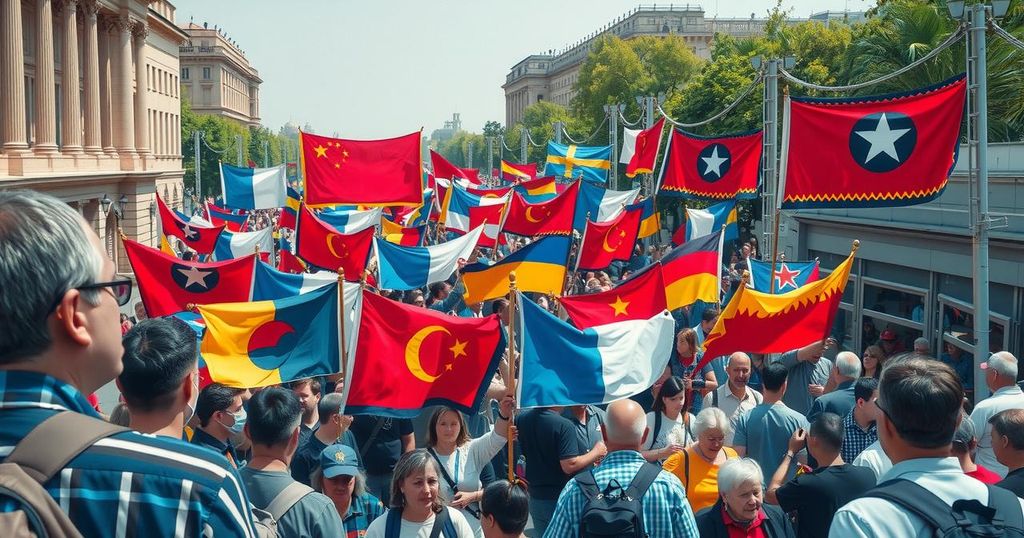The CGT union in Argentina has called for a general strike on April 10 against President Milei’s austerity measures, demanding pension increases and infrastructure projects. This action follows intense social unrest and violent protests, as the government seeks new IMF loans amid ongoing economic challenges.
Argentina’s largest labor union, CGT, has announced a general strike for April 10, marking the third protest against President Javier Milei’s administration in just 15 months. CGT General Secretary Héctor Daer revealed that the strike will involve 36 hours of protests, beginning with demonstrations on April 9 and followed by a 24-hour nationwide work stoppage.
The CGT is advocating for immediate pension increases, the resumption of halted public infrastructure projects, protections for the manufacturing sector, and an end to what they term excessive police crackdowns on protests. Historically aligned with the center-left Peronist movement, the CGT had previously conducted two nationwide strikes: one in January to oppose Milei’s mass deregulation and budget cuts and another in May that focused on safeguarding workers’ rights and wages.
This upcoming strike follows violent confrontations on March 12 between police and demonstrators protesting pension reductions, reflecting significant social unrest since Milei assumed office. The demonstrations, which began as peaceful gatherings of retirees, escalated when soccer fans joined, resulting in 45 injuries, including 20 police officers and 25 civilians, alongside over 120 arrests.
These escalating social tensions arise as Milei’s government seeks a new loan from the International Monetary Fund (IMF) to manage the national debt. While the administration claims to have reduced inflation from 211% at the end of 2023 to 66% today, critics argue that this achievement has been accompanied by considerable social hardship due to stringent austerity policies.
In summary, Argentina’s CGT union has initiated plans for a significant general strike in response to President Milei’s austerity measures and social unrest amid ongoing economic challenges. The union’s demands reflect critical issues surrounding pensions, infrastructure, and workers’ rights. This development highlights the growing tensions between the government and various social groups amid the pursuit of financial assistance from the IMF.
Original Source: al24news.com




